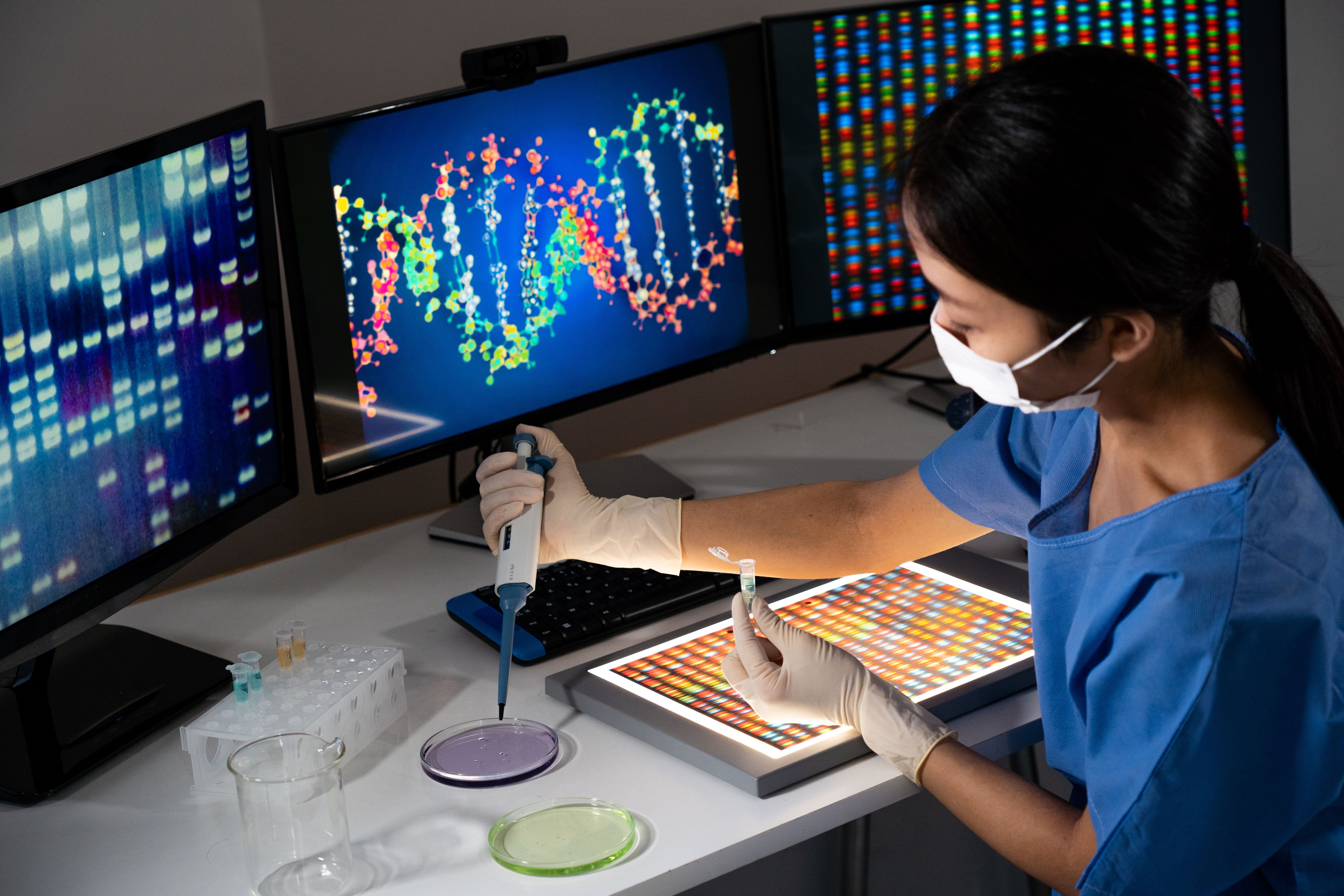- Center on Health Equity & Access
- Clinical
- Health Care Cost
- Health Care Delivery
- Insurance
- Policy
- Technology
- Value-Based Care
Top 5 Most-Read Gene Therapy Articles of 2024
The most-read gene therapy articles included topics on FDA approvals, chimeric antigen receptor T-cell therapies, the cost-effectiveness of gene therapies, as well as other findings.
The most-read gene therapy articles include topics on FDA approvals, CAR-T cell therapies, the cost-effectiveness of gene therapies, as well as other findings. | Image Credit: RFBSIP - stock.adobe.com

The most-read gene therapy articles published on AJMC.com this year included topics on FDA approvals, chimeric antigen receptor (CAR) T-cell therapies, the cost-effectiveness of gene therapies, as well as other findings. These articles reflect the growing importance of value-based contract models, increased affordability of life-saving drugs, and the role of insurance coverage.
Here are the top 5 most-read gene therapy articles in 2024.
5. Medicaid Aiming to Improve Patient Access to High-Cost Therapies
Adam Colborn, JD, associate vice president of congressional affairs at the Academy of Managed Care Pharmacy, clarified rules around value-based contracts in Medicaid along with a new model to expand access to gene therapies. Colborn explains the biggest focus is on the Medicaid side with support of the Medicaid Value-based Purchasing Arrangement for Patients Act introduced in the House of Representatives and the Senate.
4. Experts Issue Call for Reform to DMD Drug Pricing, Trial Approval Process
There are 5 targeted treatments that have received accelerated approval since 2016 by the FDA for use in Duchenne muscular dystrophy (DMD). These drugs include eteplirsen, golodirsen, casimersen, vitolarsen, and delandistrogene. The total spending rate for eteplirsen, golodirsen, and casimersen totals to $3.1 billion, increasing from $7 million in 2016 to $879 million in 2022. Experts highlighted that the main controversies in the spending space center on a lack of extensively proven efficacy and delayed confirmatory trials, despite these genetically targeted treatments all demonstrating novel mechanisms of action.
3. Dr Ben Rome Scrutinizes the FDA's Accelerated Approval Pathway for DMD Treatments, Calls for Policy Reform
Benjamin N. Rome, MD, MPH, primary care physician and health policy researcher at Brigham and Women's Hospital and Harvard Medical School, and member of the Program on Regulation, Therapeutics, and Law (PORTAL), analyzed how the FDA’s accelerated approval process has moved 5 genetically targeted treatments for DMD through its pipeline, despite limited evidence on their efficacy. Rome delves into the delays in achieving confirmed evidence as well as high drug prices.
2. Addressing CAR T Challenges: Enhancing Collaboration for Patient Care
Experts presented a poster at the recent Association of Cancer Care Centers 50th Annual Meeting and Cancer Center Business Summit that highlighted the lack of standardization in patient management and use of CAR T-cell therapies for the hematologic malignancies multiple myeloma (MM) and lymphoma, as they call for greater collaboration between non–CAR T and CAR T–treating teams throughout the patient journey. Based on these findings, partnerships have aimed to create comprehensive educational resources that community health care professionals would have access to for patients with MM or lymphoma.
1. Analysis Explores Gene Therapy's Potential to Be Cost-Effective in SCD
Gene therapy to treat sickle cell disease (SCD) is a highly promising potential solution, but only when the cost does not exceed $2 million. The FDA approved exa-cel and lovo-cel to treat SCD, but their 7-figure prices per infusion exceed this range: $2.2 million and $3.1 million, respectively. These findings could have implications beyond the SCD space in that a sizable patient population who do not have SCD could be eligible for future gene therapies when enrolled in Medicare, Medicaid, or both.
Switching to Gene Therapy After Nusinersen or Risdiplam May Benefit Patients With SMA
August 15th 2025Children with spinal muscular atrophy (SMA) showed motor function improvements after switching to onasemnogene abeparvovec following prior treatment with nusinersen or risdiplam in a real-world study.
Read More
